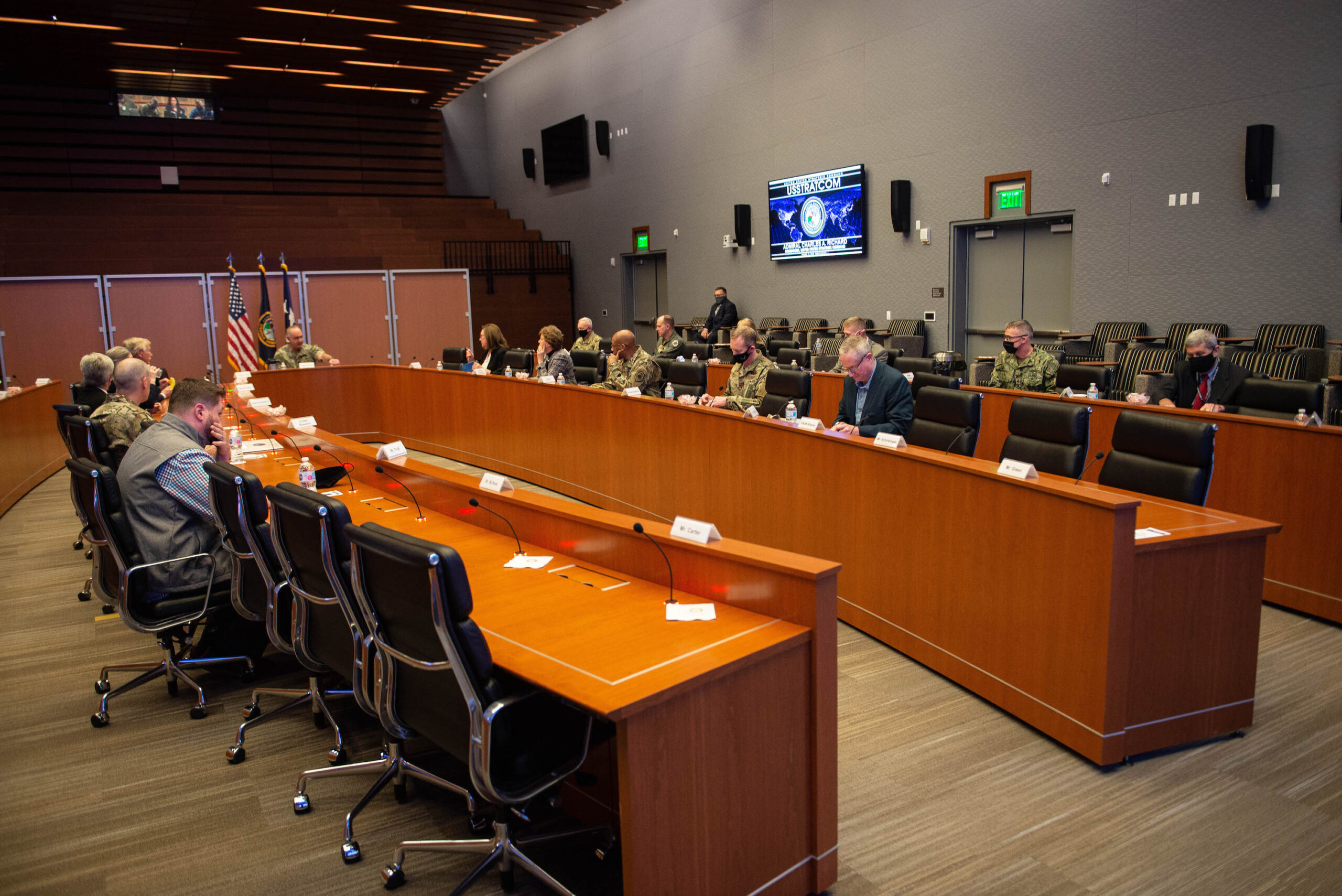Products You May Like
King: Without an adequate N3C system ‘none of the rest of it works’
WASHINGTON — The U.S. nuclear command, control and communications system that serves as the link between U.S. nuclear forces and presidential authority could be vulnerable to cyber attacks and needs upgrades, Sen. Angus King (I-Maine) told reporters May 1.
King, an independent who caucuses with the Senate’s Democratic majority, is the chairman of the Senate Armed Services Committee’s subcommittee on strategic forces, which oversees the Pentagon’s space, nuclear and strategic deterrence programs.
King and a bipartisan group of senators on Saturday were briefed on U.S. nuclear modernization efforts at Offutt Air Force, Nebraska, where U.S. Strategic Command is headquartered. The senators on Friday also toured U.S. nuclear operations at Minot Air Force Base, North Dakota.
During a call with reporters after the Saturday briefing, King said the nuclear command, control and communications system known as NC3 was a “major point of discussion” and a “significant part of the briefing” senators received at Offutt.
NC3 is a Cold War-era system of interconnected sensors, communications and early warning satellites, aircraft and ground control centers. The Trump administration in 2018 assigned U.S. Strategic Command the responsibility for upgrading the NC3 architecture so it’s compatible with modern technology.
King said nuclear command and control has become “much more complicated” and cybersecurity is a high priority. “All I can tell you is that it’s very much at the forefront” of the Strategic Command’s plan to upgrade the system, he said.
Ongoing discussions about the cost of modernizing the U.S. nuclear triad “tend to focus on missiles and airplanes and submarines, but command and control is essential,” King said. “It really ought to be referred to as the quad, not the triad.”
The U.S. nuclear triad consists of three “legs” — ground-based intercontinental ballistic missiles, aerial bombers and submarines that can deliver nuclear weapons anywhere in the world.
Without an adequate N3C system, “none of the rest of it works,” said King.
The increasing frequency and sophistication of cyber attacks against DoD and other government systems is a cause for concern in the modernization of the NC3, he added. “The next conflict will almost certainly start with a major cyber attack to disable communications networks, and communications between the command authority and the forces, whether it’s an aircraft carrier or a bomber or a missile site.”
“It’s a challenge of assurance of communication, to be sure that you’re not cut off,” King said. “The president has to able to communicate with the forces to be able to issue commands, to consult with advisors.”
Other senators who participated in the briefing included John Hoeven (R-N.D.), Deb Fischer (R-Neb.), Jeanne Shaheen (D-N.H.) and Joni Ernst (R-Iowa).
